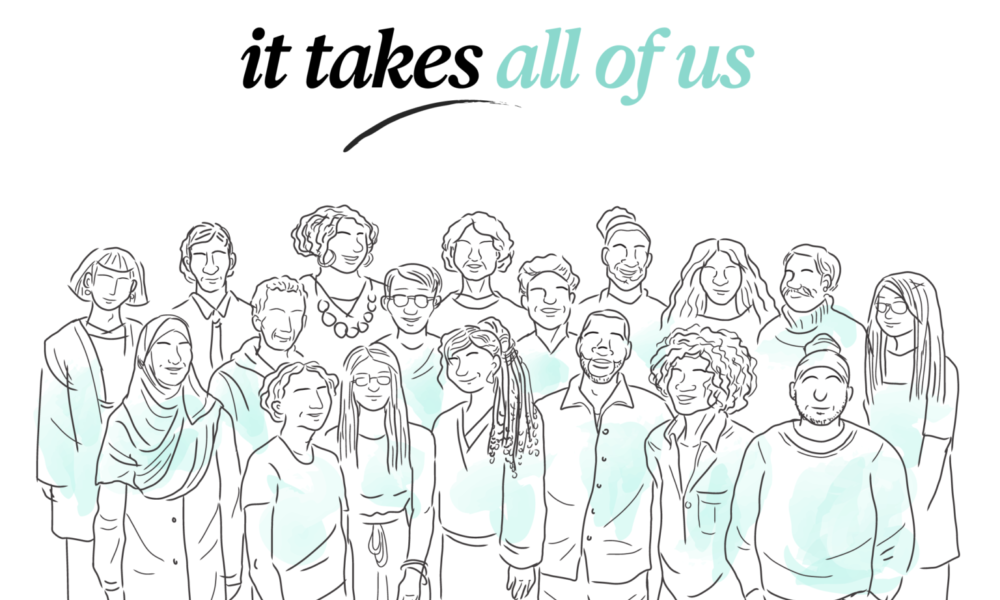Content warning: Mentions of sexual violence
McGill launched a new version of its mandatory “It Takes All of Us” program, an online tool meant to educate the McGill community about sexual violence, on Jan. 30. The updated version was created by the Office for Sexual Violence Response, Support and Education (OSVRSE), McGill’s Teaching and Learning Services (TLS), and the Office for Mediation and Reporting (OMR).
The original program, introduced in 2019 and modelled after Concordia University’s version of “It Takes All of Us,” took approximately 45 minutes to complete and contained four modules that used “character-driven scenarios” centred around sexual violence and consent.
Felicia Gisondi founded the student-run non-for-profit Sex and Self to fill the gaps in trauma-informed and intersectional sexual health education. She recounted her experience taking the old “It Takes All of Us” program, which she found perfunctory and performative, to The McGill Tribune.
“I remember it being really easy to skip through,” said Gisondi, who is currently getting a master’s in psychiatry at McGill. “I also feel like it was a very, very easy way to say that your school does sexual health or sexual violence prevention because students are required to do a 45-minute digital training that they could probably do in 10 minutes if you skip through it correctly.”
The new “It Takes All of Us” takes around an hour to complete and is made up of five modules, still featuring “character-driven scenarios.” It is accessible through the MyCourses website and available in both French and English.
Frédérique Mazerolle, a McGill media relations officer, claims that the university did a “thorough overhaul” of the program, incorporating feedback from students, staff, and at least one postdoctoral researcher who specializes in sexual violence education.
“The [“It Takes All of Us”] refresh also puts sharper focus on the intersectionality of sexual violence and gender, race[,] and different abilities,” Mazerolle wrote in an email to the Tribune. “Additionally, given the difficult nature of some of the material, the refreshed [“It Takes All of Us”] has added more mindfulness and self-care resources for learners who may feel activated or overwhelmed while doing the program.”
The modules are designed to be completed in multiple sittings, and allow participants to save their progress. The program also has a “take a break” option that will guide users through a breathing exercise. OSVRSE urges any individuals who have or who anticipate having difficulty completing the program to reach out for confidential assistance and accommodations.
Unlike the old program, there is now only one version for both students and staff. All students and staff who started at McGill before Jan. 31 are required to complete the new “It Takes All of Us” by April 28—even if they had already taken the old version. Students who do not complete the program in time will have a hold placed on their Minerva accounts, making them unable to register for courses.
Gisondi, whose organization was not consulted during the program refresh, thinks that modules play an important role in sexual violence education, but are insufficient. She urged the university to invest in more counsellors and full-time OSVRSE staff, to recognize the “emotionally laborious” nature of the field, and fix the barriers to accessing care at the Wellness Hub.
“I feel like McGill really needs to reinvest in their sexual violence prevention, reinvest in OSVRSE, and make sure that staff are equitably and generously paid for the work that they’re doing,” Gismondi said. “There should not be less than 10 full-time paid staff at OSVRSE at any point in time. McGill has 40,000 students.”
Keith Bellec-Warrick is a longtime member of the Union for Gender Empowerment (UGE) and is the advocacy group’s finance coordinator. Bellec-Warrick, who is currently a graduate student in education, spoke to the Tribune on the day that the new program was released. He believes that the program has strengths, such as the module on consent, but also found the structure confusing at times. He pointed to a lack of continuity between modules, and thought that the section concerning sexual violence against men was not thorough enough.
One of Bellec-Warrick’s main grievances was that the new program frequently references the availability of OSVRSE’s services and fails to suggest alternatives like the Sexual Assault Centre of the McGill Students’ Society (SACOMSS). OSVRSE, although now open after a temporary closure, has very limited appointment availability according to their online booking tool.
“It just seems so irresponsible to release this program now when they don’t even have a functioning office,” Bellec-Warrick said. “I go on their website, there’s no information, it just shows a blocked out calendar where I can’t book an appointment, there’s no announcement that makes it obvious what the situation is. Imagine that I’m in a vulnerable situation.”
Like Sex and Self, UGE says it was not contacted during the remaking of the program. Bellec-Warrick thinks that this lack of consultation played into mistakes that he found while reviewing the program, such as poor French translations.
“The university doesn’t pursue or value the expertise of students, even though we have a lot to offer—and that’s a problem,” Bellec-Warrick said.
For any member of the McGill community in need of support regarding sexual violence, OSVRSE can be reached at 514-398-3954 or [email protected]; SACOMSS can be reached at [email protected] or over Zoom using the instructions on sacomss.org; the OMR can be reached at [email protected]; and the province-wide Sexual Violence Helpline can be reached at 1-888-933-9007.









